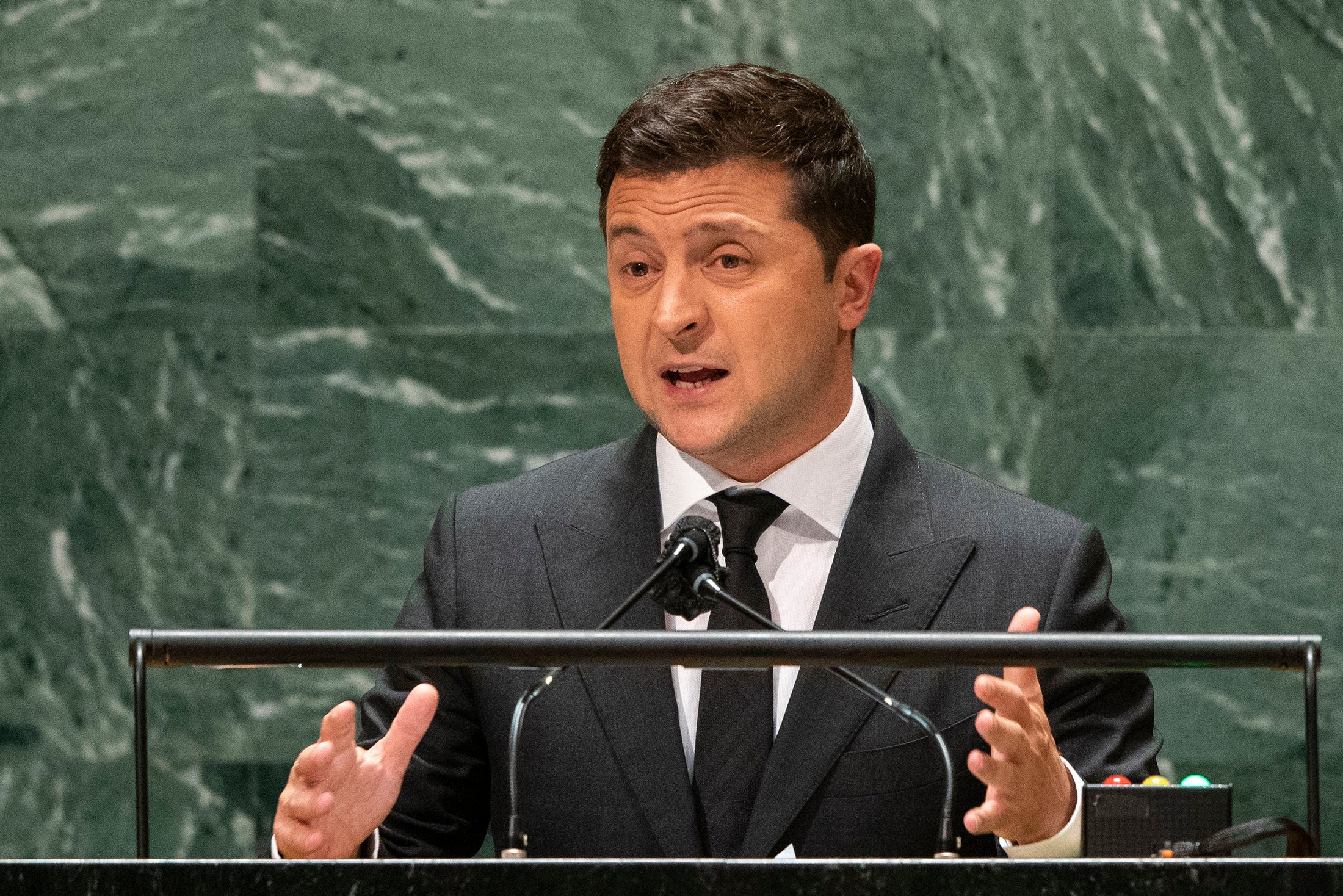Ukraine's leader takes UN to task as 'retired superhero'
Ukrainian President Volodymyr Zelenskyy certainly wasn’t the only world leader at this week’s U.N. General Assembly meeting to paint a dire picture of international relations

Your support helps us to tell the story
From reproductive rights to climate change to Big Tech, The Independent is on the ground when the story is developing. Whether it's investigating the financials of Elon Musk's pro-Trump PAC or producing our latest documentary, 'The A Word', which shines a light on the American women fighting for reproductive rights, we know how important it is to parse out the facts from the messaging.
At such a critical moment in US history, we need reporters on the ground. Your donation allows us to keep sending journalists to speak to both sides of the story.
The Independent is trusted by Americans across the entire political spectrum. And unlike many other quality news outlets, we choose not to lock Americans out of our reporting and analysis with paywalls. We believe quality journalism should be available to everyone, paid for by those who can afford it.
Your support makes all the difference.Leaders who are “playing” at unity and stuffing pressing problems into an overflowing bag of woe. A world that's in the same boat, but first-class passengers get the lifeboats. A United Nations that resembles ”a retired superhero" that has lost sight of what it used to be.
Ukrainian President Volodymyr Zelenskyy certainly wasn't the only world leader at this week's U.N. General Assembly meeting to paint a dire picture of international relations. But the former actor and comedian may well have painted the most colorful one.
In a speech Wednesday, he called out failures in areas from sharing coronavirus vaccines to halting climate change to turning back Russia s annexation of part of his country. He floated a proposal for the U.N. to head to global hotspots to hold its meetings — and offered to host one.
“I'm not being ironic. I'm not trolling anyone,” he said. “It's time to wake up.”
A political novice when elected in 2019, the 43-year-old president was addressing global diplomacy's biggest annual gathering for the third time. His first appearance, in 2019, was fraught with a U.S. political firestorm over a phone call between him and then-U.S. President Donald Trump Trump was eventually impeached over the call, in which he prodded Zelenskyy to investigate now-President Joe Biden and his son Hunter.
When the 2020 assembly meeting went virtual because of the pandemic, Zelenskyy expressed hope that the gathering would usher in a return "to effective multilateralism and effective international solidarity.”
A year later, a frustrated Zelenskyy concluded that the pandemic had shown the world had been “playing unity — where one thing is to share objectives and quite another is to share vaccines.”
Professions of unity seem to have a footnote, said the president of a country where about 12% of people are vaccinated: “We are all in one boat, but access to lifeboats is given first to first-class passengers.”
As he has in the past, Zelenskyy exhorted the world to mount a more effective challenge to Russia's 2014 annexation of Ukraine’s Crimea peninsula, a move that Moscow portrayed as protecting Russian-speaking people there. Subsequent fighting between Ukrainian forces and Russia-supported separatists has killed more than 14,000 people, and efforts to negotiate a political settlement have stalled.
“Maybe somewhere in Central Park or Madison Square Garden, those gunshots are not heard as loudly," Zelenskyy said, referring to landmarks near the U.N. headquarters in New York. The powerful U.N. Security Council, where Russia has veto power, has never been able to take action on Ukraine
“No one feels secure anymore in this world,” Zelenskyy said, warning against allowing national interests to blow up international relations and leave only “the rule of brute force.”
Nor, he said, is the world meaningfully tackling problems that cross many national lines: climate change, hunger, poverty, illiteracy, air pollution, lack of access to drinking water, and more. Each time leaders gather for the assembly, “it’s as if we were voting to award some sort of a ‘Global Misfortune of the Year’ prize,” only to be supplanted by another, he said.
“The world simply is throwing all those misfortunes into a big bag, and it’s now already ripping at the seams,” Zelinskyy lamented. “The U.N. is like a retired superhero who’s long forgotten how great they once were.”
But he went on to enumerate reasons to remember. He pointed to such U.N. endeavors as the milestone 1948 Universal Declaration of Human Rights, food programs, peacekeeping missions and UNICEF, the agency that helps children in more than 190 countries and territories.
“That is our most valuable asset,” Zelenskyy said. “And that’s why it will never be banal or outdated to call for unity for their sake.”